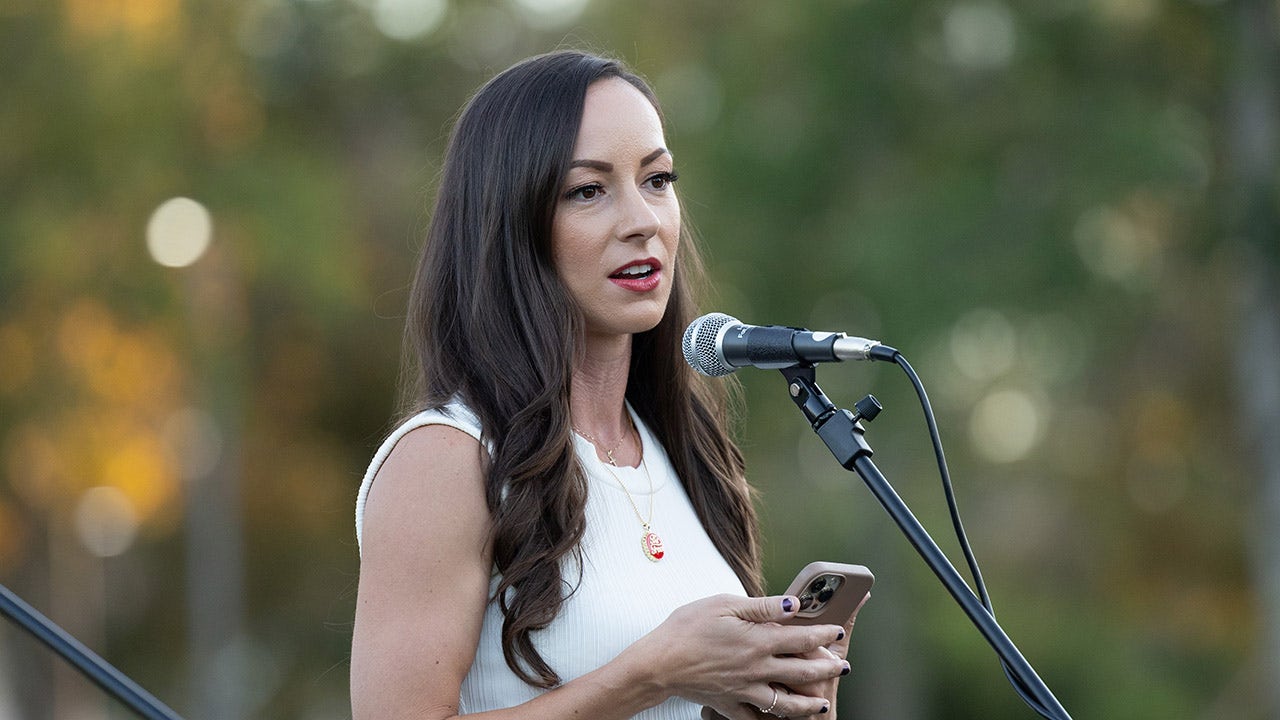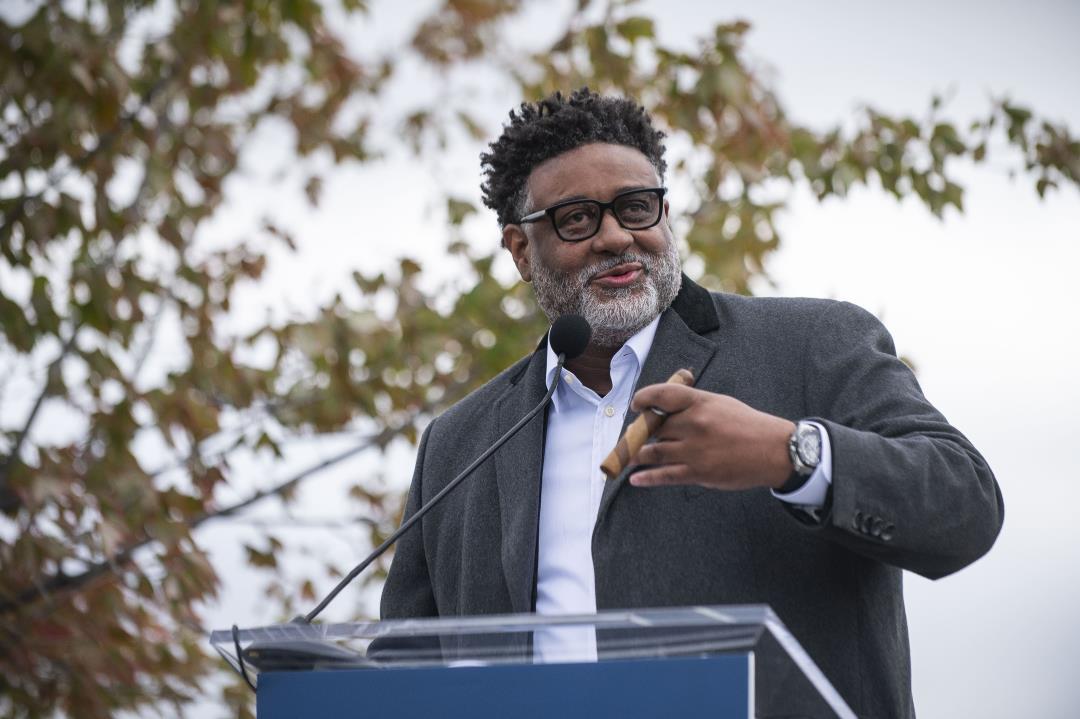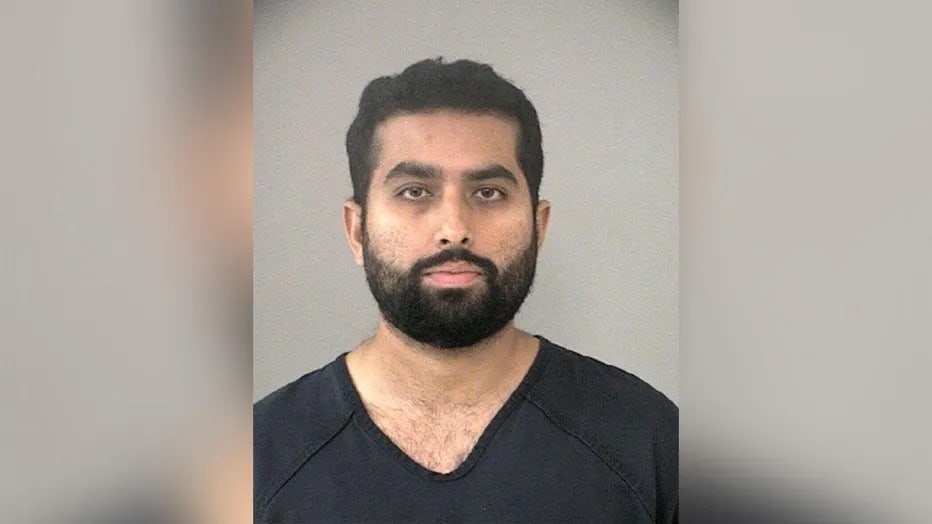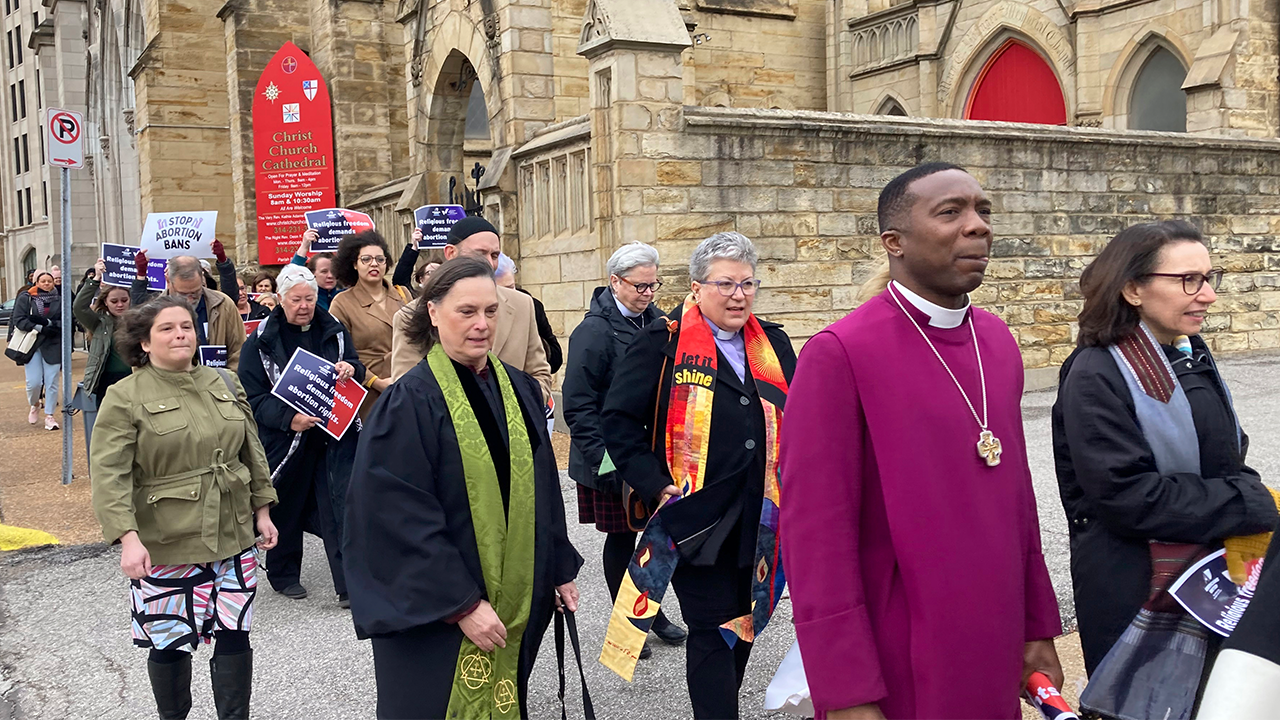West
Christian ex-teacher scores big payday from California school district after refusing transgender directives

Jessica Tapia, a Christian former teacher fired for refusing to use “preferred pronouns” or hide students’ gender identities from their parents, spoke to Fox News Digital after securing a $360,000 settlement from her former employer, California’s Jurupa Unified School District, delivering a message to other educators of faith that “truth will win in the end.”
The settlement, finalized on Tuesday, comes about a year after Tapia initially sued in California federal court.
Tapia, who was involved with the Jurupa Unified School District for more than two decades, first as a student and then later as a teacher and coach, told Fox News Digital that “from the second that I was pulled into my first meeting with the district, I knew this was some serious spiritual warfare and just a battle on truth that we’re seeing across the nation, especially in education and in and around children.”
The ordeal began on Sept. 30, 2022, when the district gave Tapia “a Notice of Unprofessional Conduct and notified her that pursuant to California Education Code section 44938, she had engaged in unprofessional conduct” and lodged “twelve meritless allegations” against her, per the lawsuit.
CHRISTIAN EX-TEACHER SUES CALIFORNIA DISTRICT AFTER REFUSING TO HIDE KIDS’ GENDER TRANSITIONS FROM PARENTS
Jessica Tapia speaks at the California Policy Center’s “A Line in the Sand: A Rally for Parental Rights” in Simi Valley on Sept. 26, 2023. (Myung J. Chun/Los Angeles Times via Getty Images)
Tapia told Fox News Digital that students looked her up on social media and “they discovered things that I don’t discuss in class” and her stance on various topics that revealed she’s an “outspoken Christian conservative.” Tapia said she did not identify herself as being affiliated with the school district on her personal social media account, yet some students took issue with “some of my values and beliefs that didn’t align with theirs.” The students then sent the district about seven or eight specific posts from her “Jesus highlight” on Instagram.
“Once students found me on social media, they reported me immediately to the school district. The next day, I was pulled out of my class away from my students, never to return again,” Tapia told Fox News Digital. “I was placed on paid administrative leave, which then led to three various meetings at the school district office.”
The lawsuit says the district accused her of “posting offensive content on her public Instagram account, referencing her faith during conversations with students, and expressing controversial opinions on issues pertaining to gender identity.” In the second meeting, the district presented Tapia with “A Plan of Assistance and Directives,” which required that she “lie to parents about their children’s gender identity, refer to students by their preferred pronouns, refrain from expressing her religious beliefs with students or on her social media, and allow students to use the bathroom or locker room that matched their preferred sex.”
Tapia sought a religious accommodation, arguing she would not be able to comply with the directives because they went against her beliefs.
“That third and final meeting in January 2023 was the religious accommodation meeting where I was questioned up and down on my Christian faith,” Tapia said. “And at the end of that, they decided from that that they could not accommodate my religious beliefs and were therefore firing me.”
Tapia told Fox News Digital she never had a student come up to her asking to identify by the sex opposite of the one listed on her class roster or asking to be permitted into the girls’ locker room as a biological male, so the directives were all based on how she “would hypothetically handle a situation with a transgender student if I were to ever have one.”

Jessica Tapia was fired from the Jurupa Unified School District for refusing to comply with transgender directives. (Fox News Digital)
With the loss of income, Tapia told Fox News Digital that she was concerned her family would lose their house, but she found comfort through the Bible verse Matthew 10:39, which says, “Whoever finds their life will lose it, but whoever loses their life for My sake will find it.”
“I could have saved my life. When I say life in this circumstance, I’m obviously meaning my teaching career, my salary; I could have saved it myself. I could have taken control of that. I could have saved it by just saying yes and bowing down to these directives,” Tapia said. “But, you know, I chose to realize that, you know, God is in control. He’s in control of my life. And if I do lose my life or lose … my job in this situation, I don’t know how that’s going to look, but somehow God’s going to show me my life, or I’m going to find my life. I’m going to find my true purpose, by choosing Him, by choosing to stand in the truth here.”
Her attorney, Julianne Fleischer of Advocates for Faith & Freedom, a nonprofit law firm dedicated to religious liberty that took on the case in May 2023, told Fox News Digital that Tapia had “no negative performance reviews” and always “maintained a level of respect for every student that she’s had.”
“The school district specifically terminated her because of her religious beliefs,” Fleischer said. “What we’re seeing with these types of directives at school districts across the nation as they’re implementing these different transgender policies and threatening teachers and educators with termination from their employment, is a type of religious test … because what they’re essentially saying is you need to ascribe to our own religion or you’re no longer qualified to serve as a public school teacher. And so, Jessica’s religious beliefs become second class to the school district’s ideology as it relates to transgender and transgender policies.”

Jurupa Unified School District Superintendent Trenton Hansen, right, was named in the lawsuit filed by former teacher Jessica Tapia. (Jurupa USD YouTube)
“What the district has done and with this type of test, it essentially makes it so no teacher of faith is qualified to serve in a public school setting,” she added.
Since she graduated from Jurupa Valley High School in 2010 and later came back to the district “that essentially raised me” as a teacher, coach and lifeguard, Tapia said she found the changes happening in society and culture to be “very bizarre” but that “government education” seems to have adapted to them. She said if the “so-called religion that the school districts apparently hold were in place when I was a student,” she probably would not ever have been involved with the Bible study that her swim coach invited her to attend throughout high school as a teenager.
Reached for comment Wednesday, the Jurupa Unified School District said “the settlement is not a win for Ms. Tapia but is in compromise of a disputed claim.”
“Ms. Tapia is no longer an employee of the District and has agreed and understands that she may not seek reemployment with the District,” the district spokesperson said. “The settlement certainly does not state or prove any illegal action or discrimination by the District. The District continues to deny any illegal action or discrimination against Ms. Tapia.”
The spokesperson also stressed that the district has not admitted any fault or wrongdoing against Tapia.
“The decision to settle this case was made in conjunction with the District’s self-insurance authority and in the best interest of the students, such that the District can continue to dedicate all of its resources and efforts to educate and support its student population regardless of their protected class,” the spokesperson continued. “The Jurupa Unified School District remains committed to providing all students with a safe and welcoming learning environment. The District will continue to follow all local, state, and federal laws, including laws against harassment and discrimination to protect its students and employees.”
Tapia has partnered with Advocates for Faith & Freedom on an initiative called “Teachers Don’t Lie,” which aims to provide resources to teachers of faith about their constitutional rights.
She said teachers don’t lie to students, to their parents and, lastly, to themselves.
“These are our students, but they’re not our children. And so, we have to hold that … respect for parents; parental rights first and foremost, above anything, that’s their child,” Tapia told Fox News Digital. “I was being asked to leave my beliefs at the schoolhouse gate for the eight hours a day that I was there and just do … whatever they were asking me to do. You know, and that was a scary thought, too, because I’m like, ‘If this is what you’re asking me to do now, I know it’s not going to stop here.’”
Read the full article from Here

West
Newsom urged to halt progressives' 'scheming' to derail popular anti-crime initiative

California Republican Rep. Kevin Kiley and the rest of the state’s Republican delegation are calling on Gov. Gavin Newsom and state Democrats to drop what they say is “cynical political scheming” to legislatively undermine a popular bipartisan anti-crime effort.
On Tuesday, the Secretary of State’s Office announced voters will have their chance to repeal key portions of the controversial Prop. 47 law – which significantly lowered the penalties for certain categories of drug and theft crimes – in the November general election after the petition garnered more than 600,000 valid petition signatures to secure a spot on the ballot. The initiative only needed 546,651 to qualify, according to the state secretary’s office.
But Newsom and Golden State Democrats oppose the initiative and are working to fast-track their own public safety bills pertaining to curbing criminal retail theft without reforming Prop. 47. Some Democrats plan to introduce inoperability clauses into the set of proposed public safety bills to prevent them from going into effect if voters approve the Prop 47 reforms. They contend that it’s a way to ensure there aren’t any inconsistencies in the law.
“This measure will repeal the most problematic provisions of Proposition 47 from 2014. It is a vitally needed policy correction to address the growing problems of retail theft, open-air drug markets, and homelessness in our state,” Kiley wrote in a letter to Newsom on Tuesday.
NEWSOM PROPOSES DEFUNDING LAW ENFORCEMENT, PRISONS, PUBLIC SAFETY AS CALIFORNIA FACES MASSIVE DEFICIT
California Gov. Gavin Newsom, left, U.S. Rep. Kevin Kiley (Getty Images)
The California Republican added that not only have hundreds of thousands of Californians signed the petition, but it has also received bipartisan support from lawmakers such as San Jose Mayor Matt Mahan, San Francisco Mayor London Breed and San Diego Mayor Todd Gloria.
Tuesday’s letter was signed by every Republican member of the California U.S. House delegation.
“It is clear that the only purpose of this novel legislative maneuver is to equip opponents of the ballot initiative with a talking point – to be used on the campaign trail, and likely even on the ballot itself – to confuse voters and undermine the will of the people of California,” the letter reads.
“While there is a long and troubling tradition of ballot initiative language being skewed, the current scheme represents an unprecedented threat to the entire initiative process. This tactic could be used by legislators to defeat any unwanted ballot initiative going forward, simply by picking a popular piece of existing legislation and stipulating that if the initiative passes, that legislation will be repealed. This will defeat the entire purpose of the initiative process, which is designed to give voters a direct say on issues affecting our state.”
SACRAMENTO MASS SHOOTING SUSPECT FOUND DEAD IN JAIL CELL WHILE AWAITING TRIAL

California Gov. Gavin Newsom opposes efforts to reform Prop. 47. (California Governor Gavin Newsom YouTube channel)
Leaders of the initiative to roll back Prop. 47 measures, called the Homelessness, Drug Addiction and Theft Reduction Act, argue that the law led to the uptick in theft and robberies after the threshold for shoplifting was dropped to $950. It also lowered grand theft and receiving stolen property to a misdemeanor instead of a felony.
According to Kiley’s office, Newsom and the Democrats’ bill package would “take effect immediately and make it so they will be automatically reversed if the ballot initiative passes.”
“Cynical political scheming designed to turn the initiative upside-down is an affront to every California voter,” Kiley wrote.
A spokesperson for Newsom’s office told Fox News Digital via email that “California law provides existing robust tools for law enforcement and prosecutors to arrest and charge suspects involved in organized retail crime – including up to three years of jail time for organized retail theft.”
“The state has among the lowest (i.e. toughest) thresholds nationally for prosecutors to charge suspects with a felony, $950. The majority of states – including red states like Texas ($2,500), South Carolina ($2000), and Mississippi ($1,000) – have weaker laws that require higher dollar amounts for suspects to be charged with a felony,” the spokesperson added.
The letter comes as progressives in the state in recent months have appeared to backtrack on their soft-on-crime policies. According to a Public Policy Institute report in February, researchers tracked a rise in shoplifting, especially in the Bay Area, and a larger rise in commercial burglary among urban counties in California between 2020 and 2022. Shoplifting rose 29% statewide from 2021 to 2022.
Nationwide, a 2023 report from the National Retail Federation, the world’s largest retail association, found that organized retail crime was a primary driver of the massive amount of “shrink” retailers saw in 2022, with nonemployee stealing making up 36%.
The term “shrink” typically means theft and other forms of inventory losses, and retailers nationwide experienced $112 billion in losses in 2022.
19 STATE ATTORNEYS GENERAL CHALLENGE BLUE STATES’ RADICAL CLIMATE POLICIES IMPACTING OTHERS

The owners of Meza’s Jewelry in El Monte fought back against a would-be smash-and-grab thief. (Meza’s Jewelry)
The NRF found that Los Angeles was one of the hardest-hit cities in California for ORC, leading the L.A. County Sheriff’s Department to create the Organized Retail Theft Crime Task Force. Many law enforcement officials have blamed the measure for the uptick in theft and smash-and-grabs that have plagued California in the years since the COVID-19 pandemic. Around the same time, California became synonymous with smash-and-grab crimes as videos of groups of thieves brazenly ransacking stores gained traction online.
Meanwhile, opponents of tough-on-crime laws argue the harsher penalties are too extreme for the crimes and could prevent a person from being rehabilitated, especially minorities.

People inhabit encampments on the streets of San Francisco on April 15, 2023. (Flight Risk for Fox News Digital)
“There’s a lot of moving parts, a lot of negotiations concurrently happening,” Newsom told reporters on Friday. “Prop 47 is included.”
Last year, the Democrat governor announced more than $267 million to increase arrests and prosecutions for organized retail crime across the state. Earlier this year, Newsom recalled how he witnessed a shoplifter stealing from Target in Sacramento. He confronted a store employee moments later.
“I said, ‘Why didn’t you stop him,’” Newsom said during a Zoom meeting on mental health in January. “She goes, ‘Oh, the governor.’ Swear to God, true story on my mom’s grave. ‘The governor lowered the threshold, there’s no accountability.’ I said, ‘That’s just not true.’”
Fox News Digital’s Louis Casiano contributed to this report.
Read the full article from Here
San Francisco, CA
San Francisco park renamed after grandmother who was fatally beaten: 'Hope and resilience'

SAN FRANCISCO (KGO) — There was a celebration of triumph over tragedy in San Francisco where a city park officially got a new name Saturday.
The Yik Oi Huang Peace and Friendship Park is named after the grandmother who was beaten there in 2019. She later died from her injuries. Relatives and community advocates want the new name to promote community healing.
It’s a new name and a new beginning for this city park in San Francisco’s Visitacion Valley.
Sasanna Yee talked about her grandmother, Yik Oi Huang, for whom this park is named. The official dedication taking place on Saturday.
“It’s been a very hard journey, very painful but also very beautiful,” Yee said.
88-year old woman brutally beaten in San Francisco park, granddaughters seek change
Yee said her 88-year-old grandmother came to this park, formally Visitacion Valley Playground, almost every day but in January of 2019, she was found badly beaten here and died months later from her injuries. The crime rocked the Asian Community. A 24-year-old suspect was arrested and is awaiting trial.
“She is survived by great-grandchildren and grandchildren, so having everyone come together as a family is really important,” Yee said.
Many hope the Yik Oi Huang Peace and Friendship Park will be a place of healing.
“I know it wasn’t easy. You turned a devastating loss into a win,” said Hermione Colthirst.
Relatives say renaming the park was originally the idea of community advocate Ronald Colthirst, who died last year.
89-year-old grandma, who was brutally attacked on San Francisco playground, dies 1 year later
“He would bring the African Americans and the Asians together as one. One of his legacies was to make sure we renamed this park,” said sister Brejea Colthirst.
“This is a true story of turning tragedy into triumph and making people understand we are better together,” said San Francisco Supervisor Shamann Walton.
San Francisco Mayor London Breed hopes generations to come will know Grandma Huang’s name.
“It’s symbol of hope, resilience for communities come together in times of challenge,” said Mayor London Breed.
Grandma Huang’s family hopes all will know peace and friendship when visiting here.
Copyright © 2024 KGO-TV. All Rights Reserved.
Denver, CO
One of Colorado’s least-visited canyonlands could become a national monument — but would that lead to overcrowding?

Those who love the Dolores River canyonlands agree — the swath of rugged land along Colorado’s western border is one of the state’s last, best wild places.
The tract encompasses staggering red rock cliffs, broad valleys and rolling hills that burst into green in the spring. Cutting through it all is the beloved river, which sometimes dwindles to a trickle.
Nobody wants to see it overrun with tourists and trash, like so many of the West’s wild places.
But disagreements about whether to designate some of the river and its canyonlands as a national monument have driven a caustic rift between the people who love the area. What those protections look like, and who gets to shape them, are at the center of a fiery debate that, in some instances, has sunk to name-calling and declarations of evil doing.
Recreation and conservation organizations want to designate nearly 400,000 acres, or 625 square miles, of the federal lands along the river as a national monument, allowing for more robust management and protection of the land. If approved, the monument would be the largest in the state and would nearly double the total acreage of monuments in Colorado.
The Dolores River canyonlands are one of the largest, most biodiverse swaths of lands without federal protections, advocates for the monument say. They worry that without further federal regulations, increased recreation, mining and development could threaten the integrity of the landscape.
“It’s a pretty incredible, intact landscape,” said Mike Fiebig with American Rivers, a nonprofit group that supports the monument designation. “We don’t have a lot of that anymore.”
Sean Pond, organizer of the Halt the Dolores Monument campaign, agrees. He can drive and hike for dozens of miles in the area outside of his home in Nucla without seeing anyone.
But Pond and thousands of other campaign opponents worry that a monument designation eventually would impact livestock grazing and limit a decades-dormant mining industry that could be revived with the recent rise in the price of uranium.
Or, worse, that creating a monument would draw the hordes of tourists that the landscape needs protection from.
“They come with a noble cause — they want to protect the Dolores River canyon,” Pond said of monument supporters. “So do we. We live here.”
Two efforts to protect river corridor
The monument proposal is one of two efforts to offer greater protection to the lands around the Dolores River.
The Dolores springs from headwaters in the San Juan Mountains near Telluride and flows southwest until it reaches the town of Dolores. From the small town, it turns north and meanders, eventually nearing Colorado’s western border, before crossing into Utah and joining the Colorado River northeast of Moab.
Colorado’s two U.S. senators last year introduced legislation nearly two decades in the making. It would designate a smaller swath of 68,000 acres along the southern Dolores River as a national conservation area and special management area. The area includes the river and its surrounding lands in Montezuma, San Miguel and Dolores counties.
The Senate Committee on Energy and Natural Resources in December approved the widely supported bill and recommended the full Senate pass it.
Two counties — Mesa and Montrose — dropped out of conversations about the national conservation area years before the bill was introduced, however.
In response, a coalition of recreation and conservation nonprofit organizations crafted the monument proposal for the lands around the northern sections of the river in those two counties. In 2022, the coalition began organizing support for the monument designation in Mesa and Montrose counties, home to about 202,000 people.
Unlike conservation areas, the designation of a new national monument on federal land doesn’t need congressional approval and can be created unilaterally by the president. Presidents have designated 163 monuments across the country, including nine in Colorado.
The Dolores River monument designation is necessary to protect wildlife, ecosystems and tribal connections and resources, monument supporters said.
“This landscape is one Instagram influencer away from being overrun, so let’s get the conservation right before it a problem,” said Scott Braden, director of Colorado Wildlands Project and one of the monument campaign’s organizers.

According to the proposal, the lands would be managed by the Bureau of Land Management and the U.S. Forest Service — as they are now — and subject to a management plan created by the entities with an opportunity for public comment. The monument would not charge entrance fees, according to the Protect the Dolores website. Livestock grazing would still be permitted, as would biking and use of motorized vehicle routes.
The government would honor existing and valid mining claims, though it would not allow new mining claims. The draft map of the proposed monument was crafted to exclude the majority of the existing mining claims, Braden said.
“We think there are places that shouldn’t be mined in this landscape … but we’re also leaving (out) a ton of areas that we think are most likely to see future mining,” he said.
So far, the coalition has collected more than 85,000 signatures and letters of support from 150 businesses, as well as some state and local politicians. Both of Colorado’s senators this year have traveled to the Western Slope to hear about the plan and talk with locals.
The Native American tribes with land in Colorado support the monument, too. Both the Ute Mountain Ute and the Southern Ute lived in the area of the proposed monument, said Regina Whiteskunk, a member of the Ute Mountain Ute and a former tribal councilmember.
The land needs to be kept as close to its natural state as possible, she said.
“This landscape provided everything for us and we survived that way for hundreds of years,” she said. “And now we’re trying to do right by the land.”
Advocates are hoping President Joe Biden will turn his attention to the idea before the November election. While Biden has designated five new national monuments — including the Camp Hale-Continental Divide National Monument north of Leadville — former President Donald Trump, who’s the likely Republican nominee again this year, created a single monument and reduced the size of another while in office.
The coalition believes the monument would help local communities by boosting outdoor recreation economies, while continuing the mining and ranching industries.

Distrust and name calling
But some in the small towns along the proposed monument’s boundary don’t buy those claims.
Pond is not sure the land needs more protections. The area’s minimal tourists need little management now, he said, but he fears that designating a monument would act as a siren call to the hundreds of thousands of RVers, bikers, motocrossers and hikers that descend on nearby Moab every year.
Visitation to the area increased in 2020 when the COVID-19 pandemic prompted many people to seek wilderness solitude, Pond said. People were camped “every-freakin’-where” that year, Pond said, but the fervor has since calmed. There is no true tourism industry in the area, he said.
Pond and others with Halt the Dolores fear that despite promises from the monument advocates, access and use regulations will change in the future. Nearly 8,000 people have signed Pond’s petition to halt the designation. County commissioners from Mesa County and Montrose County passed resolutions opposing the monument, though the mayor of Grand Junction — the largest population center in the area — supports the monument and traveled to Washington, D.C., in April to lobby for its creation.
Even if grazing is still allowed on the land, changes to motorized access could affect the feasibility of reaching cattle or maintaining ranching equipment, Pond said. Or, if the monument designation grandfathers a mining claim, blocked access could make it useless.
“They’ve said we’re spreading misinformation,” Pond said. “But I’m just spreading the other side of the truth.”
Pond also opposes a ban on new mining activity. With the price of uranium rising, the towns along the uranium belt could see a mining boom. Minimum-wage tourism jobs are not the same as the potential six-figure mining jobs such a boom could bring.
In a post on social media, Pond alleged that a monument designation would lead to entrance fees and closed-off lands, roads and trails.
Colorado’s nine national monuments cover a combined 490,000 acres and vary widely in size and management. The five created before the turn of the century are managed by the National Parks Service and the four created since are managed by the BLM and the U.S. Forest Service. Five of the nine charge an entrance fee.

Braden, from the Colorado Wildlands Project, said the monument, as proposed, would not be operated similarly to the Colorado National Monument, which is heavily developed and sits just outside Grand Junction. A better comparison would be to the Camp Hale or Canyons of the Ancients national monuments.
The debate over the monument has resulted in name calling and harassment, both sides said.
On Facebook, Pond has called supporters of the monument “eco-terrorists” and called Braden a “parasite” and “the embodiment of evil.” Others opposing the monument have called local businesses that support the monument a “cancer on the community.”
When asked about the posts, Pond said his emotions have sometimes gotten away from him and that he’s trying to be more politically correct.
He did not apologize and said that if his language brings attention to his cause, “then so be it.”
Pond said he also has faced harassment, including a death threat he said he reported to law enforcement. He also cited a woman who screamed at him from across the room at a community meeting last Sunday in Nucla.
The inaccurate talking points and name-calling from those who oppose the monument have been disheartening, Braden said. But he believes compromise is possible.
“We’re ready to come to the table and meet people where their concerns lie and try to figure something out that’s workable for everybody,” said Braden, who lives in Grand Junction. “But at the end of the day, we’re committed to permanent protection of this landscape.”
Get more Colorado news by signing up for our Mile High Roundup email newsletter.
-

 News1 week ago
News1 week agoIsrael used a U.S.-made bomb in a deadly U.N. school strike in Gaza
-

 World1 week ago
World1 week agoFrance to provide Ukraine with its Mirage combat aircraft
-

 World1 week ago
World1 week agoRussia-Ukraine war: List of key events, day 833
-

 News1 week ago
News1 week agoNonprofit CFO Accused of 'Simply Astonishing' Fraud
-

 Politics1 week ago
Politics1 week agoGeorge Clooney called White House to complain about Biden’s criticism of ICC and defend wife’s work: report
-

 Politics1 week ago
Politics1 week agoNewson, Dem leaders try to negotiate Prop 47 reform off California ballots, as GOP wants to let voters decide
-

 World1 week ago
World1 week ago‘Bloody policies’: Bodies of 11 refugees and migrants recovered off Libya
-

 Politics1 week ago
Politics1 week agoEmbattled Biden border order loaded with loopholes 'to drive a truck through': critics












